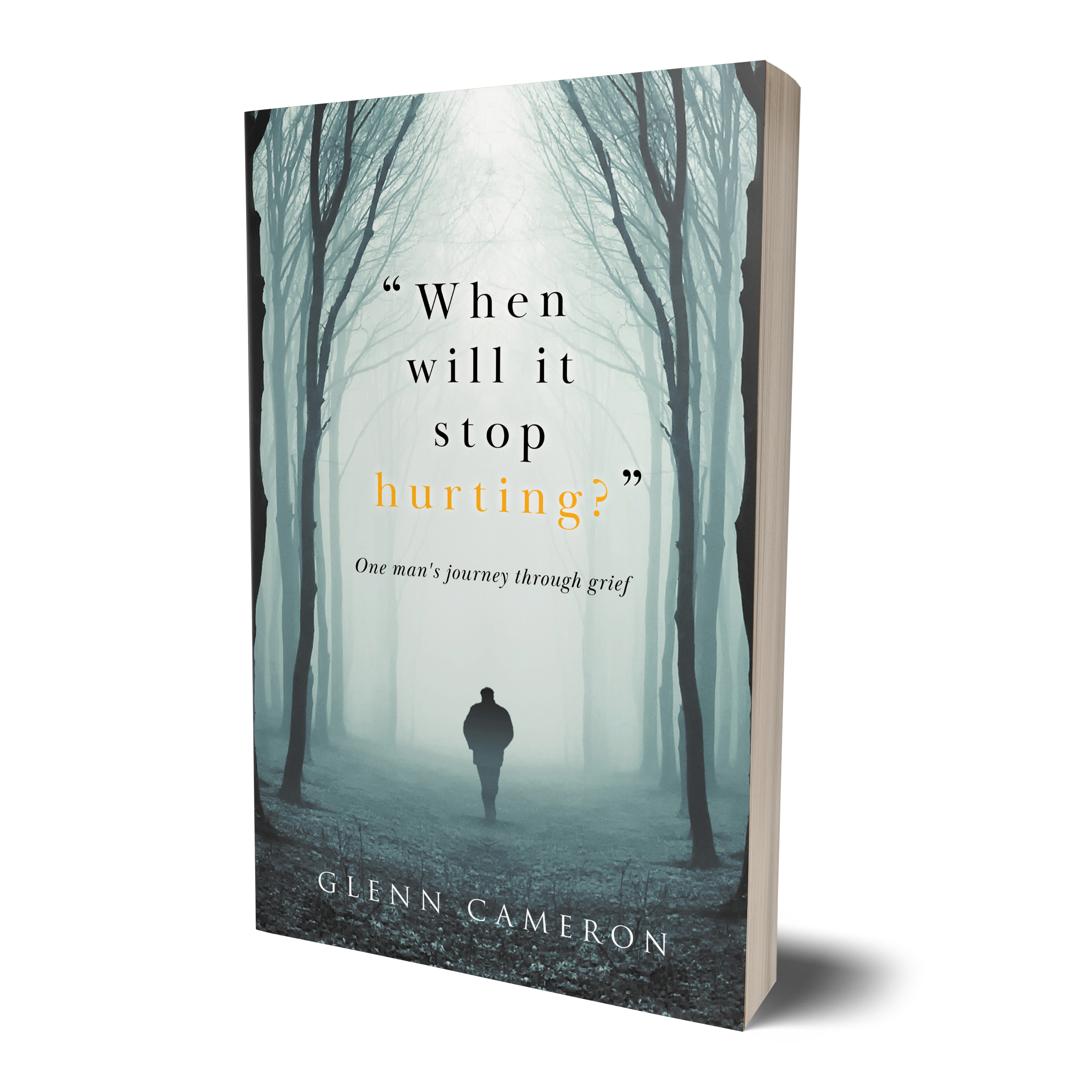by Glenn Cameron | Sep 18, 2019
“Will you marry again?”
Losing a spouse presents a unique situation in the grieving process. Family and friends are—I am not sure I can find the correct adjective. Curious? Anxious? I don’t know what words to use, but they want to know the answer to this question.
They allow some time to pass after the death of our loved one before broaching the subject, but the question hangs in the air, so palpable you feel you can reach out and touch it. Especially in those moments where conversation lulls. You see the question forming in their mind, wondering if it is too soon. Then, pop! As if in a bubble, the question dissipates. Too soon, they must have decided.
For me, there was no ‘too soon’ for this question. It never bothered me, in fact, I felt it was a perfectly reasonable question. My sister was the first one brave enough to get the question out. Others followed as time passed.
My answer has always been the same: “Never say never, but I do not see myself getting married again.” My response could imply I was not happy in my marriage with Crystle. If you have read any of my previous writings you will know that Crystle is the best thing that ever happened to me. No, three reasons to come to mind. First, I am still deeply in love with Crystle. Second, if I married again, I am afraid I would be constantly comparing my new spouse to Crystle. That would not be good for either one of us.
My last reason for shunning a second marriage is family politics. My grandfather never remarried after my grandmother passed. He would often say when asked about this topic, “What if Richard (his son) wants to come over for tea?” Worried that his ‘new’ wife might say she didn’t want him coming over, my grandfather would smile broadly and say, “I would have to tell her to go lie down upstairs because Richard was coming for tea.” I echo my grandfather’s sentiment.
Despite my own hesitation, I have to say that I have seen many people get remarried, at all ages, and have happy second marriages. I rejoice with them. I may even envy them a little. Never say never, but for now, I am still Crystle’s guy.
by Glenn Cameron | Sep 6, 2019
I believe I have defeated grief. What does it mean to defeat grief? Ask one hundred people that question and I suspect you get one hundred very unique answers. I can describe what that means to me, but does it really matter what it means to me?
In its very basic definition it invokes the idea of duality. You either win or you lose, so if I have defeated grief, am I in effect saying that I won? I read an article recently wherein the author was taking exception to Sheryl Sandberg’s personal story of losing a spouse, as she shared in her book, Option B: Facing Adversity, Building Resilience, and Finding Joy. Ms Sandberg is an American executive, currently COO at Facebook.
The author of the article took issue with Sandberg’s journey through grief, and was particularly bothered by the words used by Ms Sandberg in her book. Words Matter was the heading of a section in the article where she took issue how Sandberg described her journey with resilience, overcoming, recovering, and control. She suggested that if one followed Ms Sandberg’s advice you would view grief as a monster to be beaten. And that’s not how one should approach grief.
I differ with the author in that I believe words DO NOT matter. At least, not in how we choose to define grief. My definition of pain in grieving is almost certainly going to differ from yours. I have only skimmed Option B and I must say I have little in common with Ms Sandberg’s path through grief other than to say that for me, grief was a monster to be avoided. I wanted to defeat grief. And I did.
In defeating grief, does that mean I have left Crystle in the past? Far from it. She is with me in my thoughts every day. I miss her fiercely and wear her wedding ring on a chain around my neck to remind me of her every day. At times I am overcome with sadness and I weep in her absence. I allow those moments to come and go. But I still feel I have defeated grief.
Words can be dangerous. Please allow me to carry the belief that I have defeated grief.
The most important thing for us to do as we support each other in grief is to allow each of us to walk our own path. Whatever that looks like, we all have the right to grieve in our own way. The author of the article handled grief very differently than I would want to, at least in the words she used to define her grief. I support her in her journey, and who knows, if we take away the words, maybe we live our lives in much the same way.
For me, I defeated grief.

